This month in Phytogen we introduce our new Website and Communications Sub Committee including the new editors of Phytogen, Razlin Azman and Lucas Auroux.
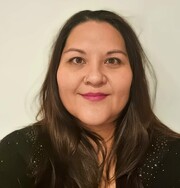

Fascination of Plants day is 18th May 2024. Get in contact with Scott Boden if you have ideas or want to get involved.
We have the first 2024 Science Meets Parliament report for Lim Chee and the 2023 ASPS Education and Outreach Award report by winners Robert Sharwood, Michelle Donovan-Mak, Jayakumar Bose, David Randall, Jing He, Oula Ghannoum and Zhonghua Chen.
Announcing an extension to 2024 ASPS award applications to Sunday April 28th for the;
ASPS Education and Outreach Award
R.N. Robertson Travelling Fellowship
And a call to join ASPS members Matt Gilliham and Michelle Watt on the ARC College of Experts. Nominate HERE.
Science Meets Parliament 2024 report
Lim Chee Liew, School of Agriculture, Biomedicine and Environment, La Trobe University.
In March 2024, I had the pleasure of representing the Australian Society of Plant Scientists (ASPS) as a delegate to the Science Meets Parliament (SMP), an annual event at the parliament house, Canberra, organised by Science and Technology Australia (STA). This year was the biggest ever event with 360 delegates, 90 Parliamentarians, and more than 50 amazing speakers.
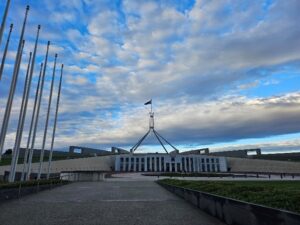
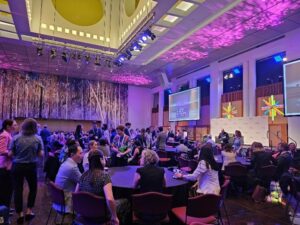 Over the two-day event, I have the opportunities and privileges to hear from leaders and policy maker about how to play an active role in shaping our scientific policies and future. One of the highlights was the incredible speech by Australia’s Chief Scientist Dr Cathy Foley who emphasised the fundamental science is equal to if not more important than translational science because of the social benefits and “be a well and not a waterfall of expertise” to engage effectively with parliamentarians and public as an expert. Minister of industry and science, Ed Husic acknowledged Australian researchers for advancing science, health and tech and announced new STEM funding that supports for collaboration with research institutes in Asia and the passing of Australian Research Council Amendment Bill 2023 in Parliament. On top of these, I was really impressed by the insightful National Press Club addresses from STA president Prof Sharath Sriram which highlighted the need of Australia to boost R&D spending to 3% GDP as a bold investment to create an innovation ecosystem and more job opportunity of high value jobs. “Be a smart country, rather than a lucky one” was my take home message from Prof Sharath Sriram.
Over the two-day event, I have the opportunities and privileges to hear from leaders and policy maker about how to play an active role in shaping our scientific policies and future. One of the highlights was the incredible speech by Australia’s Chief Scientist Dr Cathy Foley who emphasised the fundamental science is equal to if not more important than translational science because of the social benefits and “be a well and not a waterfall of expertise” to engage effectively with parliamentarians and public as an expert. Minister of industry and science, Ed Husic acknowledged Australian researchers for advancing science, health and tech and announced new STEM funding that supports for collaboration with research institutes in Asia and the passing of Australian Research Council Amendment Bill 2023 in Parliament. On top of these, I was really impressed by the insightful National Press Club addresses from STA president Prof Sharath Sriram which highlighted the need of Australia to boost R&D spending to 3% GDP as a bold investment to create an innovation ecosystem and more job opportunity of high value jobs. “Be a smart country, rather than a lucky one” was my take home message from Prof Sharath Sriram. 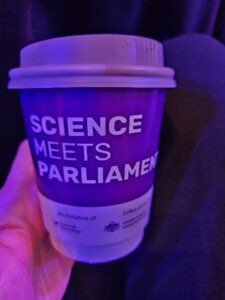
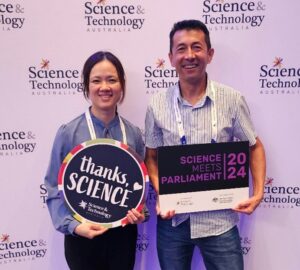
There is more work to be done in order to bridge the gap on what the parliamentarians do and what we scientists know through science communication and engagement. As scientists, we need to be equipped with advanced skills in policy engagement, communications, advocacy, and influence. Feyi Akindoyeni on the panel of advocacy also stressed on communication being persuasion, cut through and relevance, build a relationship and make sure your ask is clear. I have also increased my understanding about how scientists can engage with the media from media representatives and science communicators Brandon How, Donna Lu, and Nate Byrne. CEO of CSIRO, Doug Hilton highlighted the importance of collaboration by using metaphor of “just like food, science is much better, and far more enjoyable, when shared”.
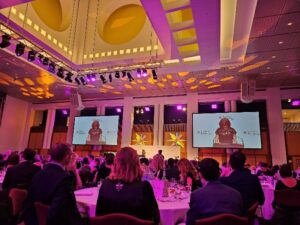
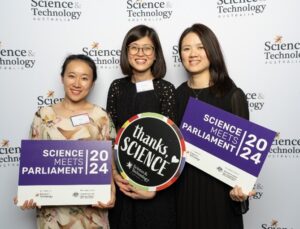 On top of the excellent seminars and talks, the Gala Dinner at the Great Hall, Parliament House was the networking highlight of the SMP. I got my opportunities to engage with scientists and parliamentarians from different area of expertise. Attending Question Time was another highlight for me where I get to watch Parliament in action in person.
On top of the excellent seminars and talks, the Gala Dinner at the Great Hall, Parliament House was the networking highlight of the SMP. I got my opportunities to engage with scientists and parliamentarians from different area of expertise. Attending Question Time was another highlight for me where I get to watch Parliament in action in person.
It was a great honour to represent ASPS to attend SMP2024. It was a great fun and eye-opening event! It provided me an excellent opportunity to learn about communicating and engaging with policy makers and also to network with scientists from diverse area of STEM.
2023 ASPS Education and Outreach Award winners report.
Ensuring Food Security Through Innovative Food Production at Western Sydney University.
The Team: Robert Sharwood, Michelle Donovan-Mak, Jayakumar Bose, David Randall, Jing He, Oula Ghannoum and Zhonghua Chen.

Image – From Left to Right: Michelle Donovan-Mak, Jing He, Zhonghua Chen, Jayakumar Bose, Robert Sharwood, Oula Ghannoum and David Randall.
Summary:
Our team has created an innovative learning environment tailored to current and future leaders in the horticulture, plant biology, and food science sectors with the long-term vision of providing healthier, and more sustainable, plants and food. In 2017, Western Sydney University and Horticulture Innovation jointly established the National Vegetable Protected Cropping Centre (NVPCC), which is used to train the next generation of growers, food practitioners, plant scientists, corporate leaders and educators. We developed three courses to bridge the protected cropping career pathway gap, Graduate certificate, Graduate diploma, and Master of Science with relevant majors. Industry informed and tailored subjects use innovative pedagogical approaches, including: flexible learning, online learning pods, and live flipped-learning tutorials. Academic materials are presented in multiple forms to engage all VARK learning styles, visual (YouTube, pictorial, graphical) audio (sound clouds, recorded lectures), reading/writing (written documents, checklists, writing tasks), kinaesthetic (hand-on practical in greenhouses, laboratories, entomological field collections).
